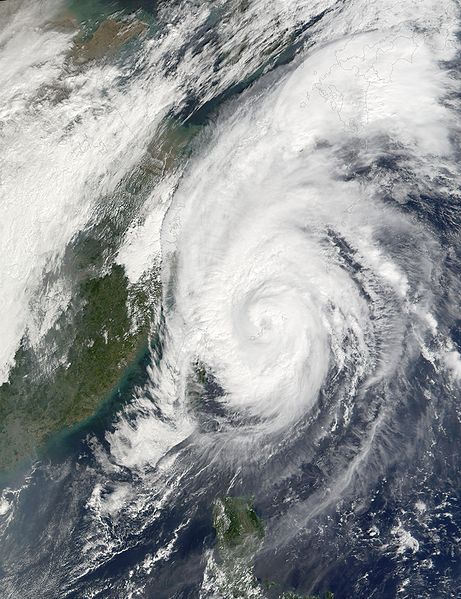The typhoon that swept through the Phillipines earlier this week has caused a great deal of tragic destruction. In the immediate aftermath of the storm, our focus must be on those immediately affected and how to help them. However, we must also focus on the fact that this is in fact one of the largest hurricanes ever recorded, and what possible influence humans have had on the growing trend of “super storms.”
It seems like every year now we experience “the storm of the century.” While there are some logical explanations for the increasing severity of these storms, how much of it is due to global warming?
A lot of the to-do with these storms comes from the media. Declining ratings has led to an atmosphere of hyperbole in the media, and having a “storm of the century” every year does a lot for ratings and mass dependency on the media. Storms are also increasing in the amount of devastation they cause because our population is growing. The more people on the planet, the more human and material capital will be potentially affected by these storms.
What about global warming? Climate change is now a commonly accepted theory amongst scientists, yet they seem hesitant to draw correlations between climate change and the increase in the severity of storms. While scientists who study weather and global warming claim the data they have shows no correlation between the two, the established fact that warmer ocean temperatures fuel the intensity of storms seems to contradict that statement.

(Photo courtesy of Wikimedia Commons)
The scientific community is known for being tedious and running experiment after experiment before coming to a conclusion. For the sake of getting things right, that is a noble and acceptable way to go about things. The study of the effect of climate change on the intensity of storms is new, and perhaps the studies conducted so far actually have not been able to draw such a correlation. But do we really need the tedious scientific process to tell us what is already staring us in the face?
For billions of people around the world, the reality of global warming is exactly what Al Gore called it, “an inconvenient truth.” Combatting global warming is going to take a lot of change to the ways we go about our daily lives and sustain ourselves. Our society, stuck in its ways, is coming around to this reality at a snail’s pace. Because of this, people readily accept anything that tells them global warming is not as bad as it seems.
If you would like to help those affected by typhoon Haiyan, by all means donate to one of the many charities contributing to the relief effort. However, if you want help beyond the immediate aftermath, make environmentally conscious changes to your daily life on. Recycle efficiently, use energy in your home efficiently, and avoiding driving when you can walk, ride a bike, or take public transportation.
Most importantly, educate yourself. Read the reports on climate change and the growing severity of storms and come to your own conclusions. Science has not only been wrong in the past, but can also take a very long time to come a correct consensus. In this day and age, many reports are released by scientists who are funded by specific entities that may play a stake in the outcome of the report.
I am not trying to say anything negative about the scientific community. It is made up of hard working people far more intelligent on such issues than most of us will ever be. However, in this instance it seems like we may not have the time to wait for the scientific community to come to an accurate and unbiased consensus. And even if by some slim chance the early reports that indicate there is no correlation between climate change and super storms are true, it would still be astronomically beneficial for numerous reasons to make that environmentally conscious change to our lives.







